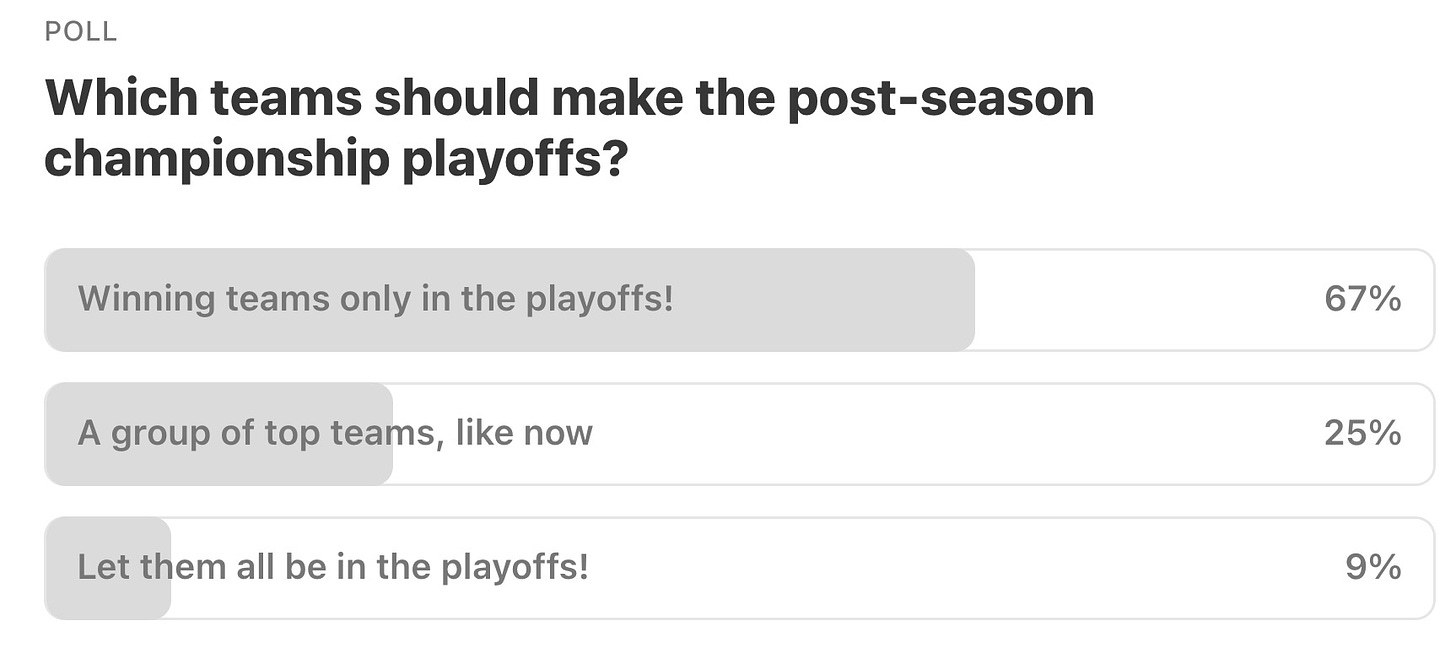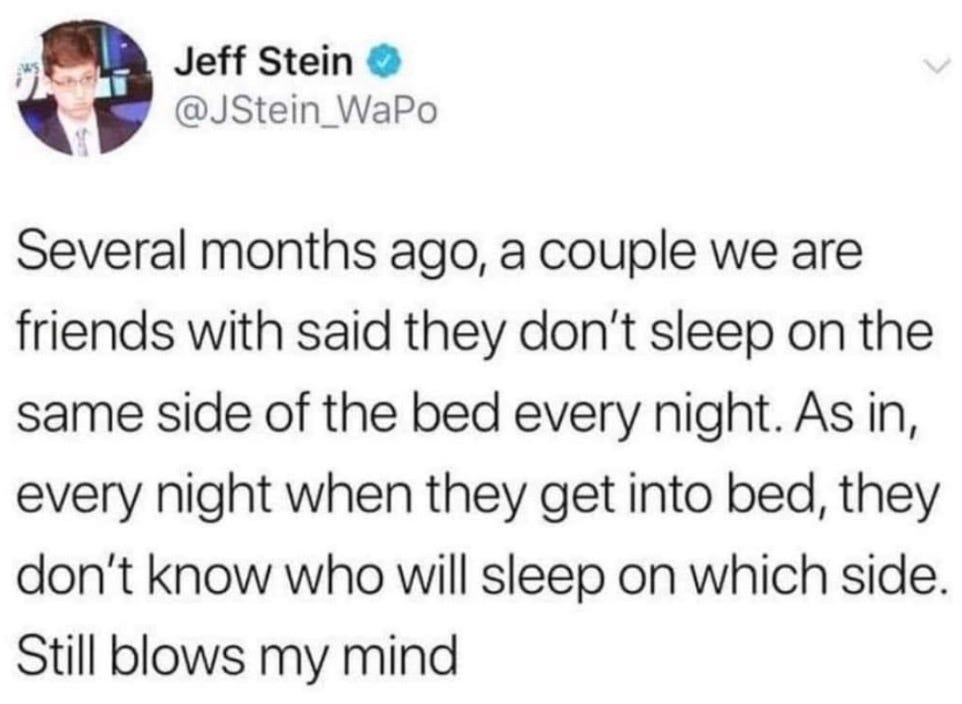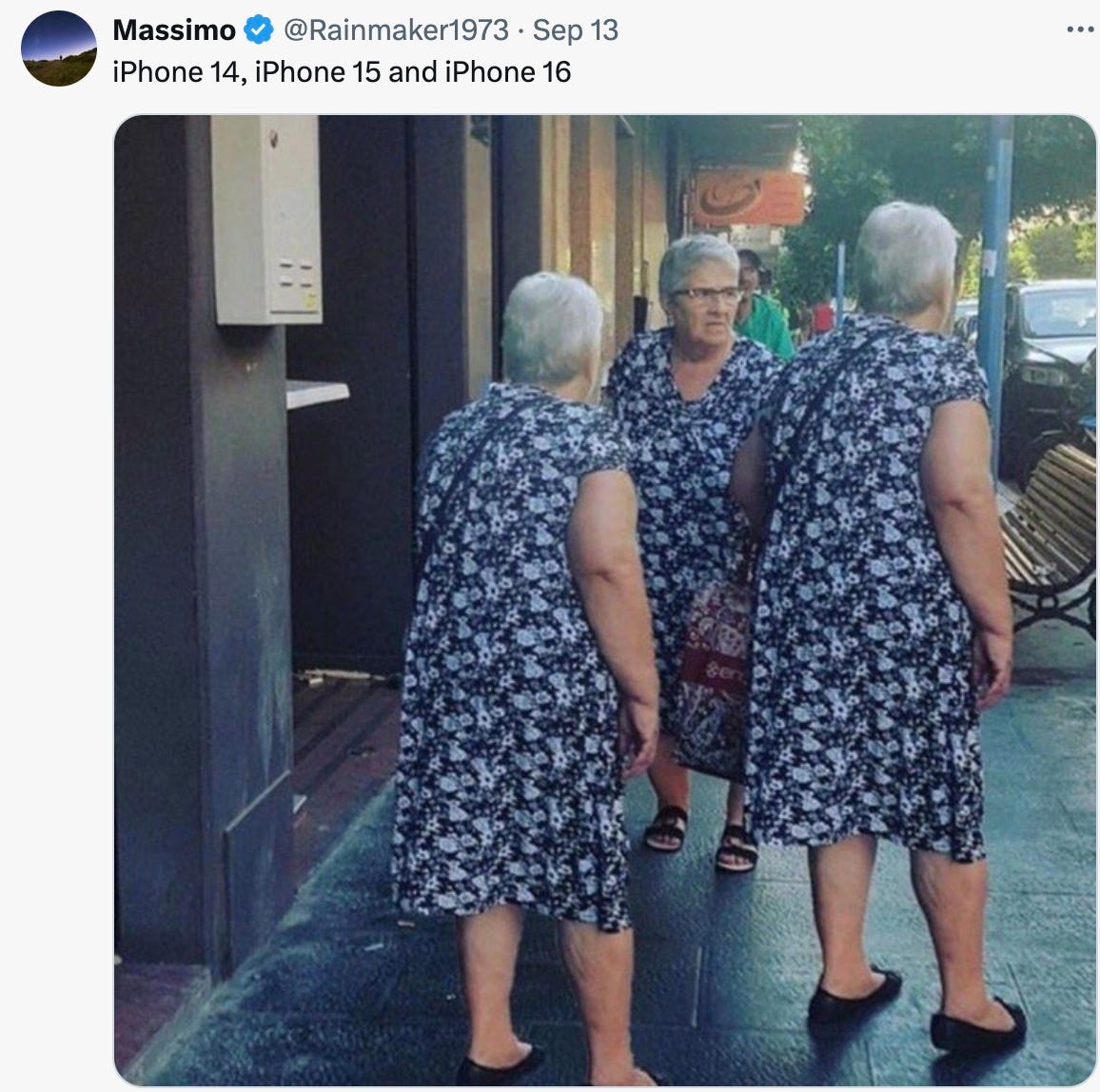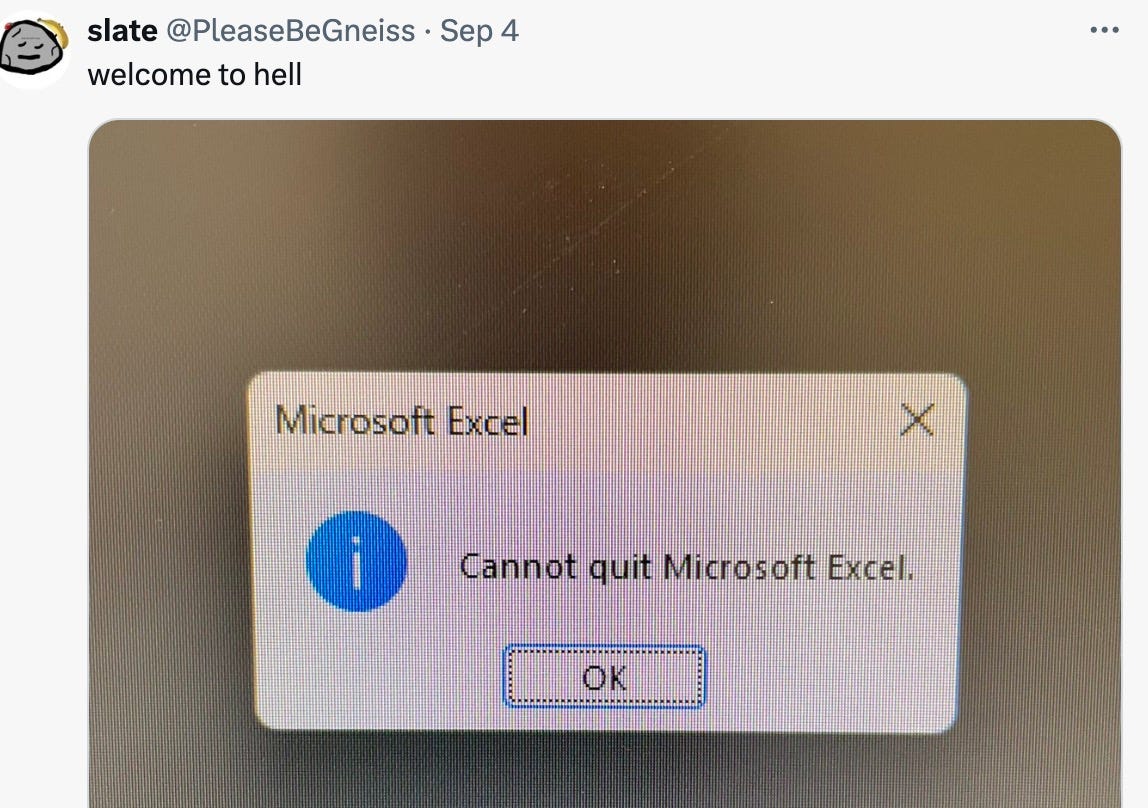Zorn: The return on investment for ShotSpotter
The $10 million "walkie-talkie on a pole" could be worth up to $1.69 billion
To read this issue in your browser, click on the headline above.
Eric Zorn is a former opinion columnist for the Chicago Tribune. Find a longer bio and contact information here. This issue exceeds in size the maximum length for a standard email. To read the entire issue in your browser, click on the headline link above. Paid subscribers receive each Picayune Plus in their email inbox each Tuesday, are part of our civil and productive commenting community and enjoy the sublime satisfaction of supporting this enterprise.
Tuesday at 11:00 a.m. I will talk with WGN-AM 720’s Jon Hansen, who is sitting in this week for regular host John Williams, about what’s making news and likely to be grist for the PS mill. The WGN listen-live link is here.
Is ShotSpotter worth it?
As of now, the beginning of the end of the ShotSpotter gunfire detection system in place in certain high-crime Chicago neighborhoods will be this coming Sunday when a two-month phase out of the $10 million annual contract is scheduled to begin.
The Tribune’s A.D. Quig reported that, at a news conference Monday, Chicago Mayor Brandon Johnson —
repeated that the company did not live up to its initial promises to reduce gun violence, describing the technology as little more than a “walkie-talkie on a pole,” and arguing the renewal was being “pushed by corporate interests.”
Not exactly. At least 14 out of the 17 aldermen whose wards are covered by ShotSpotter have asked the mayor to continue the program, which is also supported by Chicago Police Dept. Superintendent Larry Snelling and several former superintendents. In May, the City Council voted 34-14 to take control of the ShotSpotter contract away from Johnson, though that vote does not appear to be legally binding.
Last week, the Tribune published an op-ed by researchers from the University of Chicago’s Crime Lab.
Given the number of shootings each year in the police districts that currently have ShotSpotter, there is, roughly speaking, a 3-in-4 chance that the technology saves about 85 lives per year. That comes from multiplying a 4-percentage-point change in the fatality rate by the total number of shootings in the ShotSpotter areas, equal to 2,124 in 2023.
The lives-saved calculation is based on ShotSpotter alerts prompting faster responses to shooting scenes by police and paramedics and, as the Crime Lab team notes, is inexact.
The Tribune followed up with an editorial headlined, “Chicago must keep ShotSpotter. The data leaves no doubt.”
Is it worth a city with an annual budget of more than $16 billion spending $10 million (or 0.0625%) to reliably save the lives of 85 of its citizens? Darn right it is, especially if you factor in the ancillary benefit of also being more likely to catch some of those doing the shootings and then getting them off the streets.
The Sun-Times expressed reservations in an editorial in February headlined, “Johnson's mixed signals on ShotSpotter add up to another misstep.”
What will replace ShotSpotter once the contract ends in September? And what’s the plan for all those strategic centers scattered throughout police districts across the city, each with the equipment and personnel that are now being fed ShotSpotter information?
The mayor’s office says, “law enforcement and other community safety stakeholders will assess tools and programs that effectively increase both safety and trust, and issue recommendations to that effect.”
That’s so much word salad, it should’ve been served with a pepper grinder and breadsticks.
To get rid of a thing without having something on deck to replace it, especially given the police superintendent’s vocal support of the technology, is bad policy and a recipe for failure.
It also reinforces the concern that Johnson and his administration are out of their depth when it comes to addressing the city’s crime problems.
Chicagoans need real answers and solutions. The mayor wanted to keep a campaign promise, but the far more important goal is to keep Chicagoans safe.
What is the value of 85 lives? In our most earnest moments we say that every human life is priceless, yet there are obvious limits to what a government can spend or ask businesses to spend to protect lives, and seemingly cold, cost-benefit analyses must take place. In a 2020 New York times essay headlined, “Putting a Dollar Value on Life? Governments Already Do,” Austin Frakt, director of the Partnered Evidence-Based Policy Resource Center at the V.A. Boston Healthcare System, wrote:
One of the earliest values of life used in regulation came from a 1978 calculation by the Canisius College economics professor Warren Prunella. He estimated the value of a life saved by proposed furniture fabric flammability standards at $1 million, which was later adopted by Congress for regulations made by the Consumer Product Safety Commission.
Today (2020), the commission uses a figure of $8.7 million. Other U.S. departments’ and agencies’ values differ somewhat. The Environmental Protection Agency uses $7.4 million. The Department of Transportation (which includes the Federal Aviation Administration) uses $9.6 million.
These ballpark figures are helpful in determining safety and health regulations and determining award amounts in wrongful death lawsuits, and in individual cases are often based on age and other health factors. Frakt wrote:
Many studies have attempted to deduce how much Americans are willing to pay for a year of life in good health. The values vary considerably, some as low as $10,000. A study published in 2008 put the figure as high as $297,000; other assessments approach $1 million.
In January, the office of Science and Data Policy of the U.S. Dept. of Health and Human Services released an updated estimate of value per statistical life or VSL as researchers call it. The low estimate for 2024 of the value of a life was $6.1 million, the high estimate was $19.9 million and the “central estimate” was $13.1 million.
Multiply those estimates by 85, and the range is from $518 million to $1.69 billion — a good statistical return on a $10 million annual investment ($10 million divided by 85 is just $117,647 per life allegedly saved).
Not bad for a “walkie-talkie on a pole.”
The Tribune and Sun-Times posted articles Monday outlining what the Sun-Times called “the game of parliamentary ping-pong” alders are playing with the mayor and his allies this week. That game figures to come to a head at Wednesday’s council meeting.
Why Johnson is choosing this particular hill to defend so vehemently is a puzzle. He does not seem to have public opinion on his side, and his defiance of the will of the council and police brass here belies his unctuous pledge to be a collaborative mayor.
I joined podcast host Mike Pesca in interviewing a ShotSpotter executive about this controversy. The transcript is here.
Bob Fioretti is a Trumper
Septugenarians with blond hair stick together
From last week’s “Take 1” podcast interview with Republican Cook County State’s Attorney candidate Bob Fioretti, 71, former Democrat, former alderman and now perennial candidate:
Host Bill Cameron: You're a Republican, Bob, so you’ve got to tell me what you think of Trump. Should we be putting him back in the White House?
Fioretti: I support the Republican ticket as it stands.
Cameron: So, you're for Trump?
Fioretti: I said I support — I definitely am going to vote the Republican ticket.
Cameron: Why are you going to do that in the case of Trump? I'm trying to get you to tell me why you like Trump or why you think he should be back in the White House. …What are one or two of the issues that you agree with Trump on?
Fioretti: Well, first of all, I think we need to cut down on the illegal migration that's happening across our border. Look what it's doing to the city of Chicago. … It's ruining our communities. We need safe streets, strong communities and thriving businesses. …We see one business has closed because of all the migrants that are there, and the other ones are being affected by it. … We need a strong economy that attracts people here, so Chicago can expand its tax base. And I've said that for years, and we failed to do it under a lot of the leadership that we've seen in the last ten years of mayors that have been running this city.
Notes and comments from readers — lightly edited — along with my responses
Decision 2024
Joanie Wimmer — It was just 36 years ago that Democrat Gary Hart had to drop out of the running for president because he had an extramarital affair. And now, almost half of all voters are enthusiastically supporting a candidate who has been adjudicated liable in court for sexual assault, who has been found guilty of the crime of making false business records so that his extramarital affair with a porn star would not become common knowledge prior to the 2016 election, who openly demonizes minorities, who has threatened to put millions of our neighbors in concentration camps and then deport them, who has encouraged Russia to do “whatever the hell it wants” in Europe and who dines with white supremacists and Nazis.
Rick Weiland — Trump’s appeal has never been his leadership ability or even his coherence, both nonexistent; it’s that’s he’s given permission to publicly emerge all the latent racism/antisemitism/homophobia that was suppressed for a while by its being socially unacceptable. You think that’s changed? I just hope that a large enough sliver of waffling independents plus a large enough cadre of newly motivated-to-vote Swifties is enough to carry the day. But let’s not kid ourselves that the race is run and won by Trump’s behaving on debate night exactly the way everyone expected him to.
Bob E. — Trump supporters have decidedly mixed opinions of Trump and his policies [to the extent he has any policies] — but to a person, they hate the liberal elites in general as well as the liberals' often foolish and dangerous economic policies.
Steve T. — Last week’s debate was hugely satisfying for those of us who have wanted to see this bloviating bully finally put in his place in front of a large audience. If one of his Republican opponents in 2016 could have done this at some point, the GOP would still be a normal political party. Just have to hope that Harris moved the dial for a few swing-state fence sitters, because MAGA won’t budge—they see Trump as a brand, not a man.
Beth Bales — I am completely flummoxed at your dismissal of the claim that the debate moderators were biased. Surely you are smarter than that. And don't say it's because Trump told more lies. Come on! Harris got in a few fibs, didn't she? And where was anyone pushing her to be more definitive? And what about mics being muted? It was very one-sided. The debunked claims about Trump’s "bloodbath" remark and his line about "fine people on both sides" in Charlottesville both went unchallenged and unchecked by the moderators.
Zorn — The mics were muted at the request of the Trump campaign. Harris wanted them unmuted at all times. And the moderators corrected only 3 of Trump’s most flagrant lies.
As for “bloodbath,” OK, he was referring — completely errantly — about the U.S. automobile industry, and “bloodbath” was a loaded, awful, term used to describe the effects of foreign competition in the auto industry. We have real bloodbaths far too often in this country to toss around a term like that in the inexact way Trump did. Yes, he had been talking about the auto industry, but here’s the exact quote:
“I don’t get elected, it’s going to be a bloodbath, for the whole — that’s going to be the least of it. It’s going to be a bloodbath for the country.”
Not “for the auto industry” but “for the country.” Not “it’s going to create hardship” but “it’s going to be a bloodbath.”
The full context of “fine people on both sides” is here. To me there is little mistaking Trump’s attempt to suggest a moral equivalence between the positions, and I suppose if you think this country should be honoring racist traitors with statues then you will take his point.
Generally the moderators left it up to the candidates to respond and correct misstatements and fibs by their opponents, and they gave Trump the last word on virtually every topic. He could easily have contextualized his bloodbath and fine people comments. But he was not swift enough on his feet to fact check Harris, the several times that was called for.
This whining about the refs when your team suffered a humiliating blowout is unbecoming.
Michael Weiland — Harris could have had a better response on abortion. When Trump was saying it should be "up to the states," Harris should have insisted it should not be up to anyone except a woman and her doctor. And she could have borrowed Pete Buttigieg’s defense of late-term abortion: It happens when there is something profoundly wrong with a pregnancy and requires families to make gut-wrenching decisions that are not helped with government interference.
The pros and cons of tariffs
Marc Martinez — There are three reasons for tariffs. The first reason is to protect a domestic industry from competition. Historically this was to allow inefficient domestic industries to retain market share. But the modern issue has been to protect domestic industries from 'dumping' of products by foreign producers that are selling at artificially low prices. Dumping is generally supported by government regulatory (environment, labor, etc.), export and tax policy with the goal of dominating a global industry or supporting their domestic employment and GDP growth. This is the goal of China and India in many industries.
The second reason for tariffs is to maintain capacity in domestic industries that are considered strategic. These industries, like chips and video screens, need to be defended from countries that might use embargoes in times of crisis. They also restrict participation in industries that are considered potential avenues for intrusion or intrusive influence on domestic markets.
The third reason for tariffs is to force a change in the structure of supply chains. The example of a Chinese manufacturer shifting production to Mexico to avoid a tariff may still be beneficial in improving the supply chain and reducing the ability of the Chinese government to restrict production and export.
These reasons are why the Biden Administration not only retained all of the Trump tariffs but actually expanded them. It is also why the EU has followed suit on goods produced in Asia in addition to the tariffs that they apply to US goods.
And of course one obvious result of tariffs is an increase in the costs of imported goods, making them a tax on consumers.
Here is good link to a description of tariffs and their nuanced effects.
Quips quibble
Garry Spelled Correctly —I didn't vote for a single quip this week, they all sucked!
Mary Beth Lang — I voted for more than usual and was literally laughing out loud at at least three of them.
Zorn — I don’t take personally either criticism or praise about each week’s selection of quips. When they’re less than great, I blame the hive mind for not being all that amusing. My due diligence is identical each week.
Advice from a Tribune reader
Connell — Brad Biggs’ “10 thoughts…” columns on the Bears is a must read for Bear fans. The only reason I subscribe digitally to the Tribune is to read the 10 things on the Bears by Brad. Block out plenty of time it can be a long read but it's so intelligently written. As a matter of fact, he doesn't try to be funny or cute and everything he talks about seems so well researched. I wish more sport writers would study this guy. So glad you pointed this out.
Zorn — I’m in awe. This week’s review of Sunday night’s loss to Houston runs about 7,000 words.
Advice from a Tribune subscriber
Bonnie Bader — Check your bill. They've added a monthly surcharge for "fuel costs, etc." But the price of fuel is way down! I called and challenged this charge and the customer service operator agreed to take the charge off immediately.
Zorn — These add on costs are similar to what restaurants added during the pandemic — putting extra charges on the bill rather than raising the basic prices, then allowing you to take off the charges if you complain. I get it. Inflation and supply chain issues have played havoc with low-profit-margin businesses. But businesses need to raise and lower their prices accordingly and plan ahead, not sneak in extra charges. And a big reason, when it comes to newspapers, is that savvy customers will grow resentful and quit subscribing altogether.
Is there a business school graduate in the PS readership who could explain why this slippery, off-putting pricing system is optimal in the long run? I can only imagine what the conversation must have been like in the strategy session: “Hey, I know….”
Lousy teams making the playoffs?
Mark K. — I'm for a set number of teams participating in the playoffs, even if it includes teams with losing records. It sets the number of playoff games at a known number instead of reducing it. It motivates more teams to compete toward the end of a season when they may otherwise be mathematically eliminated. It allows for a chance of a huge upset instead of letting a good team off with a bye. It gives teams that were possibly hurt by a strong schedule or injuries early in the season still have a chance at the title. Rooting for an underdog is more fun, at least for me. Generally, I would want the playoff teams to be the best of that particular season, not necessarily objectively "good".
What I would like to avoid is a system where a team with a winning record is eliminated while a team with a losing record gets in, just because of division strengths. In 2010, for example, the Seattle Seahawks got in the NFL playoffs with a 7-9 record, while New York Giants and Tampa Bay Buccaneers, both 10-6, were eliminated. That just seems unfair.
Zorn— Readers in last week’s click survey disagree:
Zorn query
Kathy Pearson — You joked recently that you should think about suing Zorn Brew Works in Michigan City for using your last name. My great-great grandfather Philip Zorn Jr. started the brewery in 1871. Decades ago, my mom and I visited Michigan City so that she could show me her grandparents' home, visit family members' graves and do research in the library. We also visited the brewery and met with the distant cousin of my mom's who was running the brewery at that time. A number of years ago, I wrote to you asking if we could be related through the Zorn family. You kindly answered me that you were unaware of a connection. I have only known one other person named Zorn. (A sorority sister of our daughter's married a man named Zorn.)
Zorn — My branch of the family fled Nazi Germany in 1934 when my grandparents relocated from Germany to New Haven, Connecticut, so your branch of the family has a longer history on our shores than mine. But we may trace back even more generations! The name is not particularly uncommon — I’m currently reading Jonathan Franzen’s 2010 doorstop of a novel “Freedom,” and the lead environmental activist is Jocelyn Zorn; and let’s not forget Fox’s 2016-17 semi-animated comedy series “Son of Zorn.”
This blows my mind, too. Yours?
At home, sure. We have our own stuff in our bedside night tables. But on the road, also sure. Johanna and I have our sides of the bed and it has not changed in nearly 39 years. I have no memory of how we came to establish these positions, but they are not negotiable and never altered.
I’m curious if any couples out there switch sides at random, so I’m asking:
The week’s best visual jokes
Here are some funny visual images I've come across recently on social media. Enjoy, then evaluate:
There’s still time to vote in the conventional Quip of the Week poll!
Thank you for supporting the Picayune Sentinel. To help this publication grow, please consider spreading the word to friends, family, associates, neighbors and agreeable strangers.
Contact
You can email me here:
I read all the messages that come in, but I do most of my interacting with readers in the comments section beneath each issue.
Some of those letters I reprint and respond to in the Z-mail section of Tuesday’s Picayune Plus, which is delivered to paid subscribers and available to all readers later Tuesday. Check there for responses.
If you don’t want me to use the full name on your email or your comments, let me know how you’d like to be identified.


















The few people on your list who are Trumpers or Trump whisperers always cite hatred of elites as a driving factor for MAGA voters (often "liberal elites"--i.e., educated informed people). The standard bearers of this anti-elite movement are a pampered man-child who inherited large sums from his slumlord father, has never been called to account for his crimes, bankruptcies, cheating, etc., and lives a life of vulgar luxury; and a man who went to Yale Law, made millions in Silicon Valley, had his Senate seat bought for him by his billionaire tech pals, and poses as a hillbilly. Some horny handed sons of toil!
On the road, my sweetie always gets the side nearer the bathroom: purely pragmatic based on who always needs to use the facilities more often during the night. At home, we never change. Still, I couldn't claim "never, ever." Do other people really make their "frequent flyer" partners walk all the way around the bed in the middle of the night in an unfamiliar hotel room?